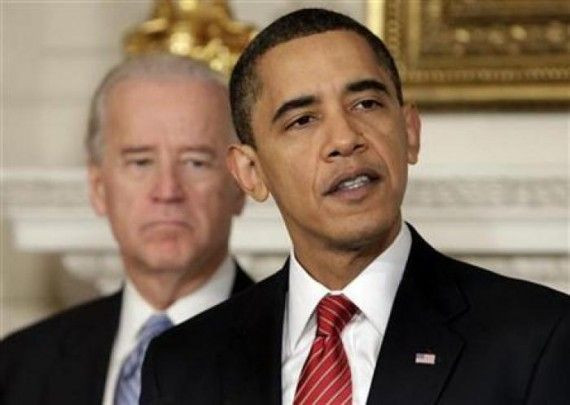Status Quo May Score Big Win On US Election Day

If the U.S. general elections were conducted not Nov. 6 but today, it appears there would be no change in control at either the White House or the Congress.
Going into the elections, the Democratic Party controls both the White House and the Senate, while the Republican Party controls the House of Representatives.
Coming out of the elections, multiple online sites across the political spectrum indicate, Democrats may control both the White House and the Senate, while Republicans may control the House.
In the U.S. presidential election, the nonpartisan RealClearPolitics suggests the Democratic incumbent, Barack Obama, would win over the Republican challenger, Mitt Romney, in the Electoral College by a 332-206 vote.
The Democratic-leaning Electoral-Vote.com and the Republican-leaning Election Projection both concur. The former sees Obama with 328 votes and Romney with 206 votes, with the candidates tied for four votes. The latter sees the results the same way as does RealClearPolitics.
Each of these three sites bases its assessment of the likely Electoral College vote count on its interpretation of current presidential-election polling data.
Meanwhile, market participants at Intrade -- self-described as “The World’s Leading Prediction Market” -- continued to indicate Saturday at 10 p.m. EDT that Obama is more likely to be re-elected and Romney is less likely to elected in November. They have bet there is a 70.4 percent chance the incumbent will win and a 29.6 percent chance the challenger will win.
Both of the Iowa Electronic Markets’ 2012 U.S. Presidential Election Markets also continued to suggest Friday at 11:59 p.m. EDT that Obama is more likely to be re-elected and Romney is less likely to elected in November.
The Senate
The battle for control of the 100-seat Senate appears to be considerably more even-handed than does the fight for control of the White House.
At present, there are 53 members in the Democratic Party caucus (two of whom are independents) and 47 members in the Republican Party caucus. RealClearPolitics indicates there could be a net change of one seat in the coming elections, with the Democratic caucus losing it and the Republican caucus gaining it.
Electoral-Vote.com sees the Democratic caucus with 53 seats and the Republican caucus with 46 seats, with the race for one seat still tied. Election Projection sees the results the same way as does RealClearPolitics.
In terms of control of the Senate, Intrade market participants have bet there is a 58.5 percent chance it will go to the Democrats, a 17.9 percent chance it will go to the Republicans, and a 20.5 percent chance it will go to neither. Gridlock alert!
The House Of Representatives
In contrast with the contest in the Senate, the struggle for supremacy in the 435-seat House of Representatives seems unlikely to produce an upset in terms of control.
Currently, there are 240 members in the Republican Party caucus and 190 members in the Democratic Party caucus, with five vacancies. RealClearPolitics suggests the Republicans would win 229 seats and the Democrats would win 183 seats, with 23 races still tied.
Electoral-Vote.com does not have a comprehensive projection based on polling data relevant to the the House battle at this time, but Election Projection sees the Republicans winning 234 seats and the Democrats winning 201 seats.
In terms of control of the House, Intrade market participants have bet there is a 79.8 percent chance it will go to the Republicans, a 20.9 percent chance it will go to the Democrats, and a 0.4 percent chance it will go to neither.
On balance, it appears Election Day could be big for the Washington status quo, which -- given the current U.S. economic morass -- seems to possibly reflect the triumph of hope over experience among the electorate.
© Copyright IBTimes 2024. All rights reserved.






















